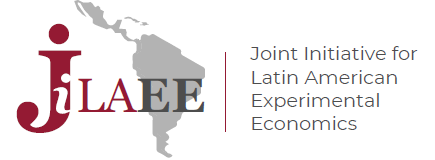Endogenous Institutions: a network experiment in Nepal
In developing countries where formal institutions are often weak or non-existent, the enforcement of local agreements is based on the community. Peer monitoring represents a natural mechanism for the enforcement of social norms and local agreements in such a setting. In this paper we study the demand for such monitoring and its effectiveness across different group compositions. We collect original network data in 19 villages in rural Nepal and conduct an experiment to study who is elected as a monitor in a public good game. Individuals play in groups of three, both with their close friends and with people far away in the social network and are given the opportunity to anonymously choose their preferred "institution". We combine theoretical approach and a unique lab in the field evidence to show that closely knit groups are significantly more likely to not choose a monitor, while sparse groups tend to prefer a high central one. Low central monitors are seldom chosen. Endogenous election of the high central monitor ensures higher cooperation compared to an exogenous assignment, but only in sparse groups.
